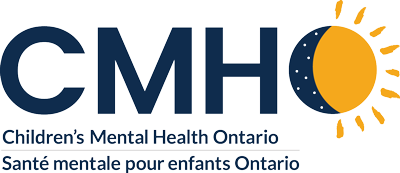Toronto, ON, July 30, 2020:
Ontario’s leading mental health and addictions organizations including Waypoint Centre for Mental Health Care, the Centre for Addiction and Mental Health, The Royal, Ontario Shores, Children’s Mental Health Ontario, Canadian Mental Health Association, Ontario Division and Addictions Mental Health Ontario are calling on the province for an immediate, one-time $100 million COVID-19 emergency response package to address the mental health and addictions impacts of the pandemic. The sector is also seeking $380 million to implement Ontario’s Roadmap to Wellness as the mental health and addiction needs of Ontario families continue to grow.
This comes on the heels of a Financial Accountability Office report tabled this week that indicated the province under-spent $466 million last fiscal year in health care. The government came in significantly under budget due to $375 million also unspent in public transit and additional savings on interest on the debt.
It is now an important time to invest a portion of these savings and new funding into the mental health of Ontarians, an investment that will pay both health and economic-related dividends for years to come.
Mental health and addictions organizations are doing their part to serve their communities during this crisis, but providers are already seeing a significant uptick in demand for services. These organizations also need to put in additional health and safety measures to ensure they are keeping staff and clients safe.
To date, the province has not kept up with promised, targeted investments for mental health and addictions year over year. For the mental health and addictions sector to continue to provide the often life-saving treatment and services Ontarians need, a comprehensive response package is needed.
This emergency response fund, representing 2.5 per cent of the sector-wide budget, would enable providers the flexibility to invest in critical emergency response areas for children, youth and adult mental health and addiction, such as:
- Redeploying additional clinical workers to cover staff shortages, fill critical service gaps, implement innovative business models and add capacity in infection control (this could include staff to do screening of clients and patients)
- Expansion of technology and digital solutions to continue to provide high-quality, confidential services such as counselling and therapy by phone or virtually (such as purchasing phones or laptops to enable virtual therapy, providing phone minutes or devices to clients)
- Improved navigation so Ontarians and their families can easily find the help they need
- Immediate investments in residential services across the lifespan
- Capital investments in supportive housing and additional operating funds needed
- Deploying funds directed to the ongoing overdose crisis (need for increase in safe consumption sites, etc.)
- New investment in community teams to respond to people in crisis that start from a healthcare rather than a law enforcement perspective
- Focusing on “back to school” and the immediate needs children and youth will have as they re-enter the school system in the fall
- Increased access to mental health and addictions supports generally in anticipation of ongoing increased need due to the pandemic, complicated by previous wait times before the pandemic. This includes investments in the Ontario Structured Psychotherapy Program
- Focused investments in a wait time strategy
Health Canada, using conservative data based on SARS, estimates that over 11 million Canadians will experience increased levels of stress during the COVID-19 outbreak, and over two million Canadians will show signs of traumatic stress. Before the onset of COVID-19, Ontarians already were facing extremely long wait lists and wait times to access mental health and addictions services. An emergency response fund for mental health and addictions programs will enable the sector to better support Ontarians and their well-being immediately, as well as help reduce preventable emergency department visits and hospitalizations.
The mental health and addictions sector is committed to continuing to work collaboratively with government and partners across the health and social services system to deliver a robust response to COVID-19 that ensures our most vulnerable Ontarians and their mental health continue to be supported.
Funds earmarked for mental health and addiction services – both federally and provincially – need to be invested as soon as possible. The $100 million one-time emergency fund to address COVID-related impacts as well as investments of $380 million to implement the Roadmap to Wellness government strategy are urgently needed to reduce the rise in wait lists and wait times.
-30-
For more information, contact:
Kimberly Moran
CEO
Children’s Mental Health Ontario
E: kmoran@cmho.org


0 Comments